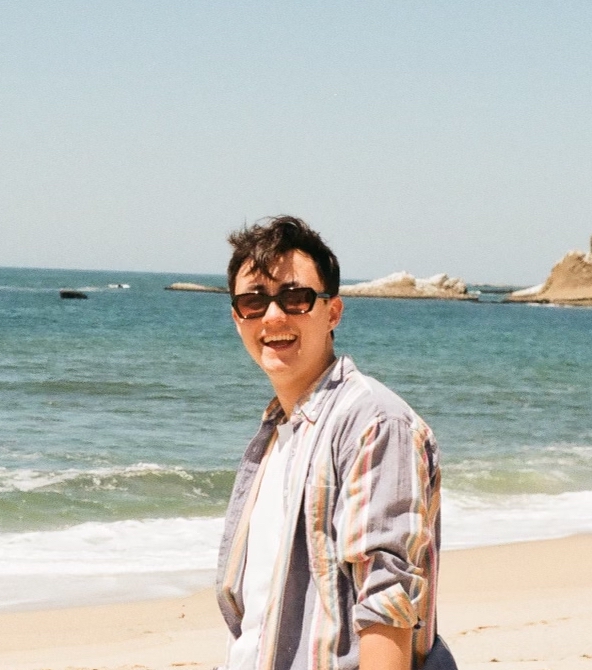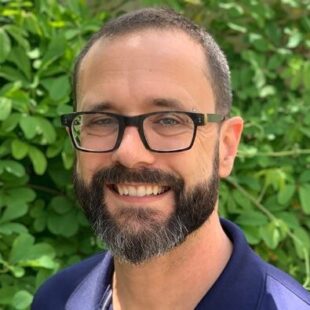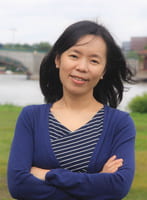Updates
-
You should be enrolled in CS2901 to have access to this semester’s Canvas, where you can join the course’s Slack channel and submit homework.
-
Welcome Ph.D. students! 🐣 🌻
-
Class meets on Fridays from 9:30-11:30am @ SEC 2.118.
-
9:30 breakfast will be available, 9:45-11 is mandatory class time, and 11-11:30 are office hours/”coffee hour” for cohort building.
Course Overview
This is a reading and discussion-based seminar designed for entering Computer Science Ph.D. students. This course prepares students to manage the difficult and often undiscussed challenges of Ph.D. programs through sessions on:
- Research skill building (e.g. paper reading, communication)
- Soft skill building (e.g. managing advising relationships, supporting your peers)
- Academic culture (e.g. mental health in academia, power dynamics in scientific communities)
- Research and professional-oriented discussions
Please come prepared having done the readings/assignments listed on the schedule prior to class.
Course Credit
This is a full-year, 4-unit course, meeting once a week in each of the fall and the spring. Students must complete both terms of this course (parts A and B) within the same academic year to receive credit.
This course is required for new (G1) Computer Science Ph.D. students. It satisfies one of the CS 200-level electives (one of the 10 required classes for the Computer Science Ph.D. degree). SEAS G1 Ph.D. students in related fields may petition to enroll with instructor permission.
Course Policy
Attendance: Class attendance and participation is mandatory. If, due to extenuating circumstances, you need to miss class, please contact the course staff ahead of time to request an excused absence. Even if you are absent from class, you are still expected to submit the homework.
Sickness: If you are feeling unwell, please stay home and notify the course staff.
Grading: The course is letter-graded based on your attendance, pre-class work, and participation. When there is pre-class work, this will be graded based on completion. We will be expecting attendance each week, and every 2 classes with an unexcused absence will be penalized by 1 letter grade (e.g. A -> A-). Each “very late” (> 15 min late) is counted as 1/2 an unexcused absence. Missing homework can also result in penalties.
Generative AI: A central part of our work as academic computer scientists is reading, writing, and thinking. We expect you to read, write, and think yourself, and not outsource this to generative AI tools, which will slow your development of these skills. Many assignments will ask you to reflect on your experience, which generative AI is ill-equipped to address. We will not be grading on grammaticality - the most important thing is for your work to reflect your own voice.
Laptops/Phones: Laptop/tablet/phone use is acceptable when directly tied to classroom activities. We will occasionally have in-class activities that require access to a device. When not engaging in these activities (or active note-taking), please do not use your devices. If you need to quickly fact-check something, you may do so briefly, and then we ask you to stow your device. Some class periods such as student panels will be designated “no devices,” even for note-taking.
Office Hours:
- Alex: Wednesdays 11:30am-12:30pm @ SEC 3.416
- Yiling: Wednesdays 12:45pm-1:30pm @ SEC 5.306
- Sonja: Fridays 11:45am-12:45pm @ SEC 2.118 (or until 75 min after class ends)
We’ll use this calendar (below) for exceptions. In addition to the regularly held office hours, additional office hours with any member of the course staff can be made by appointment.
Diversity, Inclusion and Belonging: It is the mission of the teaching staff that students from all diverse backgrounds and perspectives be well served by this course, that students’ learning needs be addressed both in and out of class, and that the diversity that students bring to this class be viewed as a resource, strength and benefit. Your suggestions for how to better our classroom community are always encouraged and appreciated.
Instructors
Other Course Offerings
- Fall 2021 - Spring 2022
- Fall 2022 - Spring 2023
- Fall 2023 - Spring 2024
- Fall 2024 - Spring 2025
- Fall 2025 - Spring 2026
Acknowledgments
This course was originally created by Yaniv Yacoby, who put a great deal of thought and effort into crafting its first two iterations, in collaboration with Eura Shin, David Parkes, and John Girash. There are a number of others who also aided in the development of this course through their helpful discussions and insights: Barbara Grosz, David Brooks, Finale Doshi-Velez, Isaac Lage, Krzysztof Gajos, Lillian Pentecost, Margo Seltzer, Sam Hsia, Udit Gupta, Weiwei Pan, Zana Buçinca
This course draws on: Justine Sherry's seminar "Reading on Research", Weiwei Pan's seminar "Diversity, Inclusion and Leadership in Tech", Yaniv Yacoby's workshop "How to make the most out of your PhD"





